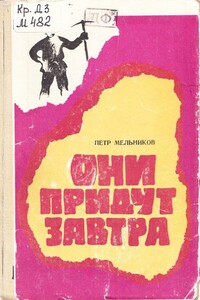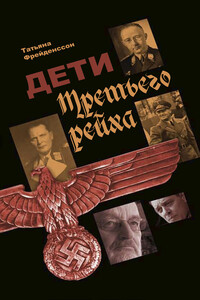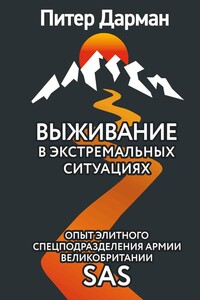The Boy Scouts In Russia - [4]
Fred was not at all afraid, as a matter of fact, as he set out. Before he had stepped across the mark that stood for the border he had been hugely depressed. He had been friendless and alone. He had been worse than friendless, indeed, since the only man for many miles about who knew him was his bitter enemy. Now he had found that he could still inspire a man like Ernst with belief in his truthfulness and honesty, and the knowledge did him a lot of good. And then, of course, he had another excellent reason for not being afraid. He was entirely ignorant of the particular dangers that were ahead of him. He had no conception at all of what lay before him, and it does not require bravery not to fear a danger the very existence of which one is entirely without knowledge.
The idea of walking all through the summer night, as Ernst had advised him to do, did not seem bad to him at all. As a scout at home, he had taken part in many a hike, and if few of them had been at night, he was still thoroughly accustomed to being out-of-doors, without even the shelter of a tent or a lean-to. Nor was he afraid of losing his way, for as long as the stars shone above, as they did brilliantly now, he had a sure guide.
Fred wasn't tired, for he had enraged Suvaroff, who had seemingly wanted him to be frightened, by sleeping during the journey to Virballen whenever he could. It had been comfortable enough on the train; he had not been treated as a prisoner, but as a guest. And he had, as a matter of fact, been aroused only an hour before the train had reached the frontier.
So he had been able to start out boldly and confidently. In the country through which he was now tramping the nights are cool in summer, but the days are very hot. So Fred had made up his mind, as soon as he understood that he had a good deal of walking before him, to do as much of his traveling as was possible by night, and to sleep during the day. In East Prussia, as in some parts of Canada, the summer is short and hot; the winter long and cold.
There was nothing about the silent countryside, as he tramped along an excellent road, to make him think of war. The fields about him seemed to be planted less with grain; they were very largely used for pasture, and he saw a good many horses. He remembered now that this was the great horse breeding district of Germany. Here there were great estates with many acres of rolling land on which great numbers of horses were bred. It was here, he knew, that the German army, needing great numbers of horses every year, found its mounts.
"They'll need more than ever now," he thought to himself. "If there's really to be war, I suppose they'll take every horse that's able to work at all, whether it's a good looking beast or not. Poor horses! They don't have much chance, I guess."
He thought of the Cossacks he had seen in Russia, wiry, small men, in the main, mounted on shaggy, strong, little horses, no bigger in reality than ponies. He had heard of the prowess of the Cossacks, of course. They had fought well in the past in a good many wars. But somehow it seemed rather absurd to match them, with their undersized horses, against magnificent specimens of men and horseflesh such as the German cavalry. He had passed a squadron of Uhlans, near Virballen, outlined against the sky. They had been grim and business-like in appearance. But then the Cossacks were that, too, though in an entirely different way.
"I wish I had someone along!" he thought, at last.
That was when the dawn was beginning to break. Off to the east the sun was beginning to rise, and in the grey half light before full day there was something stark and gaunt about the country. Before him smoke was rising, probably from a village. But that sign of human habitation, that certain indication that people were near, somehow only made him feel lonelier than he had been in the starlit darkness of the night. This would be good enough fun, if only one of his many friends back home were along-Jack French, or Steve Vedder. It was with them that he had shared such adventures in the past. And yet not just such adventures, either. This was more real than anything his adventures as a Boy Scout had brought him, though he belonged to a patrol that got in a lot of outdoor work, and that camped out every summer in a practical way.
Being alone took some of the zest out of what had seemed, once Lieutenant Ernst's loan had saved him from his most pressing worry, likely to be a bully adventure. Now it seemed rather flat and stale. But that was partly because having tramped all night, he was really beginning to be tired. So he went on to the village, and there he found a little inn, where he got a good breakfast and a bed, in which, as soon as he had eaten his meal, he was sound asleep.
Few men were about the village when he went in. He had noticed, however, the curious little throng, early as it was, about a bulletin ominously headed, "Kriegzustand!" That meant mobilization and war. The men had answered the call already, all except those who were too old to spring to arms at once. Some of the older ones, he knew, would be called out, too, for garrison duty, so that younger men might go to the front.

В книге рассказывается история главного героя, который сталкивается с различными проблемами и препятствиями на протяжении всего своего путешествия. По пути он встречает множество второстепенных персонажей, которые играют важные роли в истории. Благодаря опыту главного героя книга исследует такие темы, как любовь, потеря, надежда и стойкость. По мере того, как главный герой преодолевает свои трудности, он усваивает ценные уроки жизни и растет как личность.

Это суровое документальное повествование не предназначено для легкого чтения. В нем любознательный читатель найдет для себя немало поучительного, узнает о том, как бывшие красногвардейцы, партизаны и чекисты, во главе с коммунистом В. П. Бертиным, при активном содействии обкома партии и правительства молодой Якутской республики, еще при жизни В. И. Ленина, открывали и осваивали золотоносные месторождения на Алдане, и как самые закаленные и упорные из них в составе первой Верхнеколымской геологоразведочной экспедиции высадились на берег Охотского моря и открыли золотую Колыму. Читатель узнает также о том, как старатели и якуты-проводники помогли Ю. А. Билибину, С. Д. Раковскому и П. М. Шумилову найти в жизни более верную дорогу, чем у их отцов, и стать патриотами своей социалистической Родины, лауреатами Государственной премии. Эта книга — о повседневном будничном героизме советских геологов и золотоискателей.

Герои этой книги – потомки нацистских преступников. За три года журналист Татьяна Фрейденссон исколесила почти полмира – Германия, Швейцария, Дания, США, Южная Америка. Их надо было не только найти, их надо было уговорить рассказать о своих печально известных предках, собственной жизни и тяжком грузе наследия – грузе, с которым, многие из них не могут примириться и по сей день. В этой книге – не просто удивительные откровения родственников Геринга, Гиммлера, Шпеера, Хёсса, Роммеля и других – в домашних интерьерах и без цензуры.

В книге рассказывается история главного героя, который сталкивается с различными проблемами и препятствиями на протяжении всего своего путешествия. По пути он встречает множество второстепенных персонажей, которые играют важные роли в истории. Благодаря опыту главного героя книга исследует такие темы, как любовь, потеря, надежда и стойкость. По мере того, как главный герой преодолевает свои трудности, он усваивает ценные уроки жизни и растет как личность.

Автор, один из фигурантов громкого «театрального дела» режиссёра Кирилла Серебренникова, рассказывает историю своего «сопротивления». Книга эта – одновременно и триллер, и крутой детектив, и готический роман ужасов, это и жесткий памфлет, и автобиография. Но как бы ни определить её жанр, это повествование о стойкости, верности убеждениям и своему делу.

«Чтобы выжить, вам необходимо овладеть искусством выживания, особенно психологическим его аспектом, поскольку от этого в конечном счете и зависит, останетесь вы в живых или погибнете», — говорит Питер Дарман. В его книге «Выживание в экстремальных ситуациях» собран опыт элитных подразделений, таких как SAS и «Морские котики» США. В основе выживания лежат самые простые вещи: правильное использование одежды, инструментов, подсобных предметов и, главное, ваша психологическая готовность. Автор рассказывает о том, как выжить в различных нештатных ситуациях: в пустыне, тайге, джунглях, на Крайнем Севере.